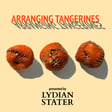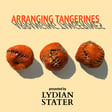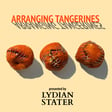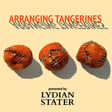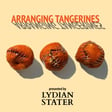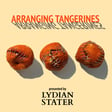
Arranging Tangerines Episode 42 - A Conversation with Matthew Porter and Carlo Van de Roer
In this episode, we talk with artists Matthew Porter and Carlo Van de Roer about how they first met, the acquisition of NFT works by institutions and museums, the ever-changing attitudes of art collectors, the challenges and strengths of working with traditional artists in the NFT space, the idea of hybridity, and what Matthew and Carlo have queued up for the future.
Episode recorded on February 21, 2023.
Mathew Porter and Carlo Van de Roer have formed a dynamic partnership known as Zome, an artist-run collective focused on collaborating with artists in the NFT space. Within this innovative venture, they have successfully launched two captivating projects: "22 Pigeons" in collaboration with renowned photographer Roe Ethridge and "154Ever" alongside the talented visual artist Mariah Robertson.
Matthew Porter has had solo and group shows in a number of international galleries and institutions, including M+B, Los Angeles, Invisible Exports, New York, Anonymous Gallery, Mexico City, Koenig & Clinton, New York, and the Foam Museum in Amsterdam. Porter's curatorial projects include "Seven Summits" at Mount Tremper Arts, "The Crystal Chain" at INVISIBLE-EXPORTS, and "Bedtime for Bonzo" at M+B. He is the co-editor of Blind Spot magazine Issue 45, and his writings and interviews have been featured in a number of publications including ARTFORUM. In 2012 Porter was included in the "After Photoshop" exhibition at the Metropolitan Museum Art, New York.
Carlo Van de Roer (b. 1975) received his BFA from Victoria University, Wellington, New Zealand. His work has been exhibited at venues such as M+B Gallery, Los Angeles; Suite Gallery, Wellington, New Zealand; the MUSAC Museum of Contemporary Art, Léon, Spain; Transformer Station Museum of Art, Cleveland, OH; the Haggerty Museum of Art, Marquette University, Milwaukee; the New Museum, NY; Hyères Photography Festival and the Paris Photo Prize — a number of these institutions hold the artists work in their permanent collections. Damiani published Van de Roer’s first monograph The Portrait Machine with text by Val Williams. Notable press includes The New York Times, The New Yorker and Wired magazine. As an inaugural participant in the New Museum’s New Inc program, Van de Roer founded a research and development lab in New York called Satellite Lab, with a focus on new technology for photography and film-making — this has led to the invention and patenting of several new camera and lighting technologies which the artist employs in his work.
